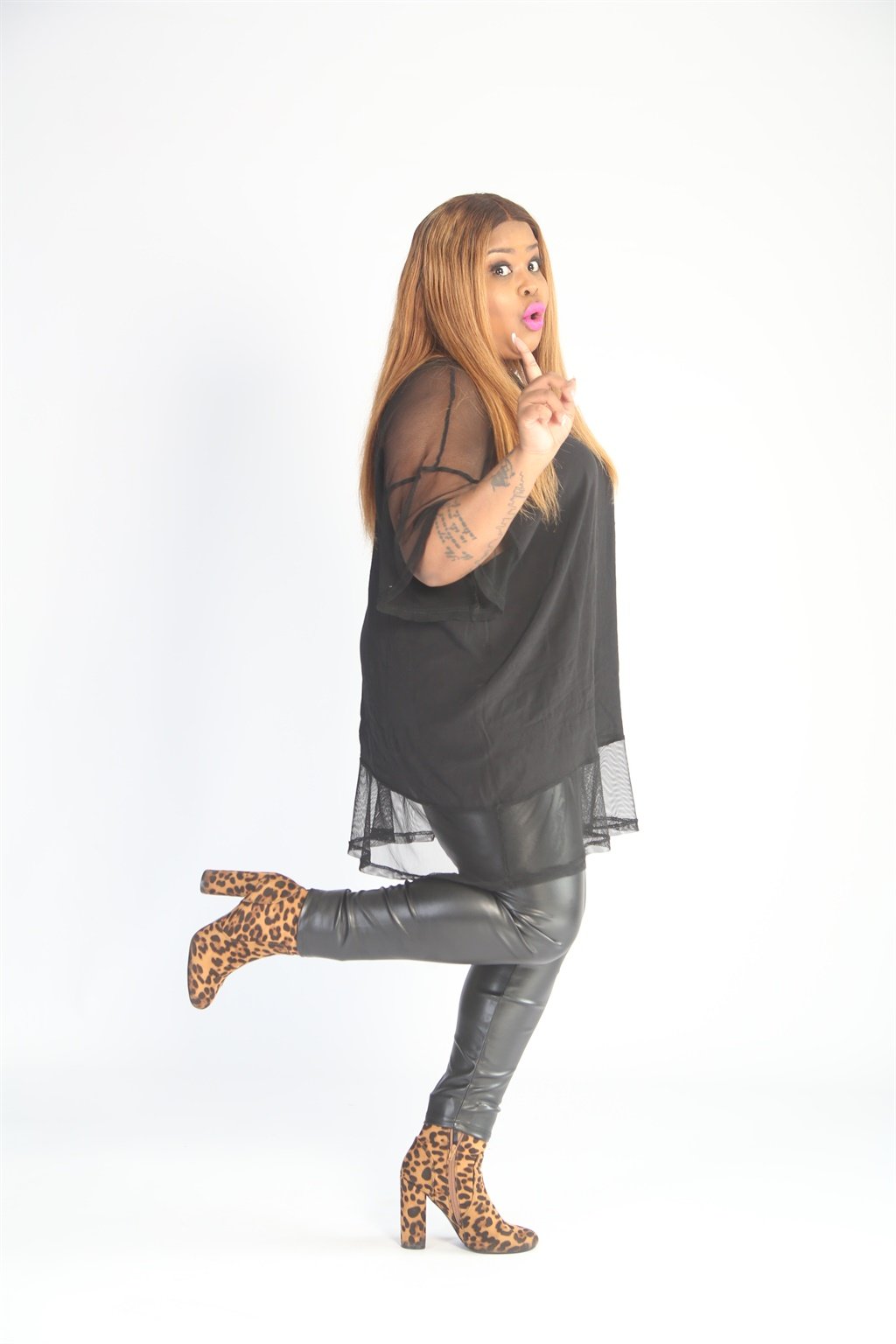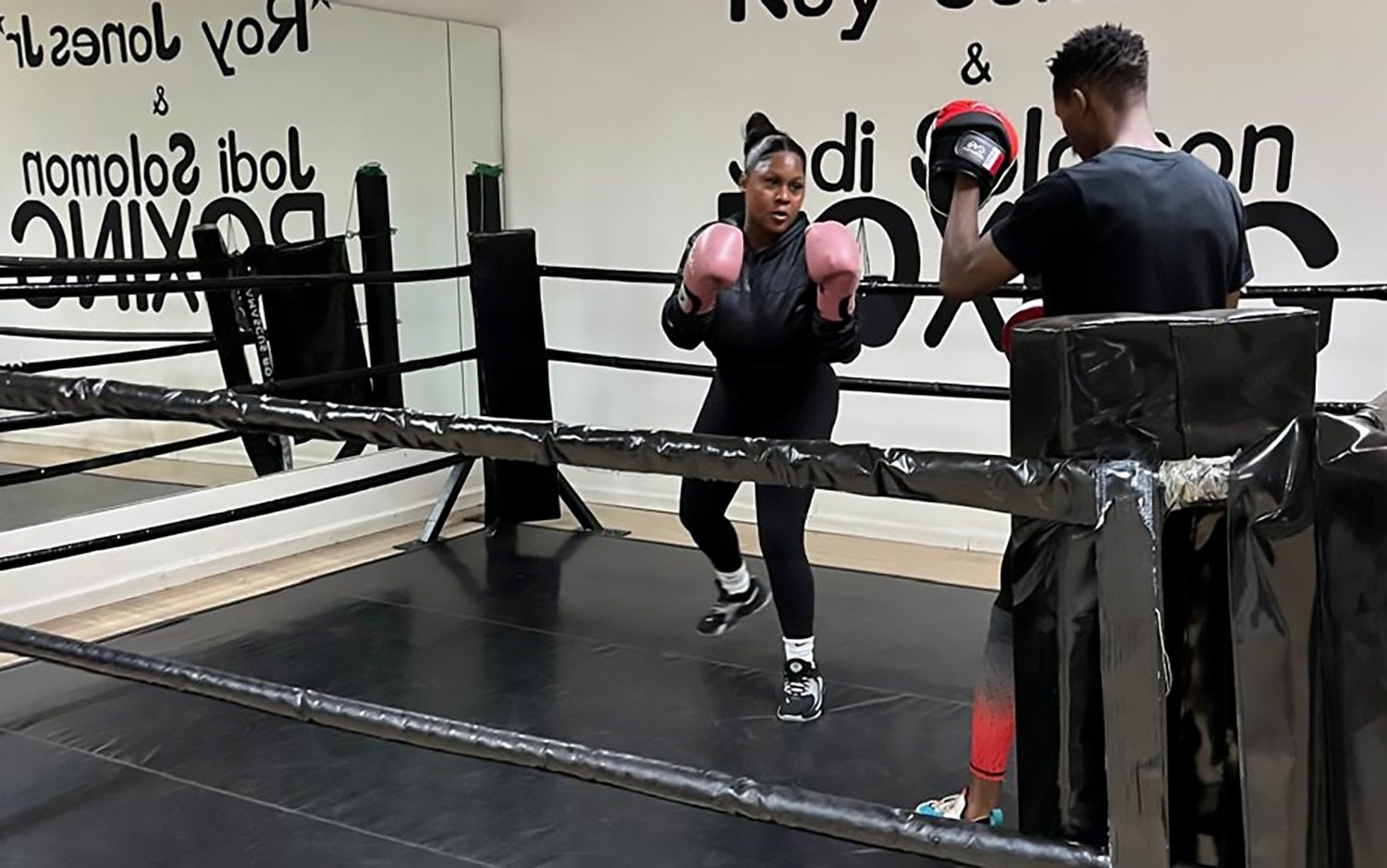
Paving the way for black women in satire, Lesego Tlhabi is ruffling feathers and encouraging debate with her outrageous character Coconut Kelz. Rhodé Marshall asks her about how Kelz was born, how she blew up and why some people just still don’t get it.
Lesego Tlhabi is the comedian behind the satirical character Coconut Kelz, who began raking in social media followers after she started sharing selfie-style videos of the young white woman who is trapped in a black woman’s body.
Coconut Kelz shares her thoughts on the differences between race groups, the top three political parties, public transport, how to avoid contact with skebengas (criminals) and why one should never stray beyond the Line of Caucus.
While some have misunderstood her satire, Coconut Kelz fearlessly tells us about her admiration of all things white, something that has riled many viewers of TV shows in which the character has appeared.
In the end, the real butt of the jokes are the white South Africans whose intolerance and dishonesties Kelz is laying bare.
Although the Coconut Kelz character has been her breakthrough, Tlhabi is no stranger to the industry, and this is a career she belongs in. She completed a BA honours in theatre at Brunel University in London in 2014 after obtaining a diploma in musical theatre the previous year from the New York Film Academy and a diploma in TV writing from Columbia University.
She is currently working as a content producer and scriptwriter for a variety of entertainment news shows and reality competitions, and is now dipping her toes into stand-up comedy.
#Trending caught up with her to find out more.
What has the support of the comedy community been like? They seem to have rallied behind you.
I’ve only been around comedians like, twice. But every time I’m around them, every time I have performed, they are so nice. It’s not that they come to me as experts. They just encourage me and say ‘you’re killing it’, ‘keep going’ and ‘don’t doubt yourself’ – all very complimentary stuff, which I think is really cool.
I think it’s easy to see that I’m being authentic and doing something completely different. Just because I didn’t hustle and struggle in comedy clubs doesn’t mean I haven’t hustled and struggled. It has been two and a half years of literally no attention and just doing it for my friends. And then eNCA [Coconut Kelz appeared on Tonight with Jane Dutton] happened, and I blew up. But I’ve been working and I’ve been trying.
Was comedy and Coconut Kelz always the plan?
Coconut Kelz wasn’t always the plan. That literally came about after the Pretoria Girls High School hair incident [in August 2016, black pupils protested against the school’s code of conduct, saying it imposed unfair restrictions on how they could wear their hair]. The character was as a result of seeing white people’s reactions to the protests and how people were saying things like ‘just change your hair’.
All I did was take quotes from Facebook and redo them on Instagram to show people themselves and make them think.
My friend told me to put it on Facebook because my account was private. But I hesitated and didn’t want to share it with the public or cause drama. But my friend insisted.
I waited for six or eight months to see what reactions would be like and then the traction started. So I was like, okay, this is a thing.
But I’ve always wanted to do comedy. I literally have always known I’m funny and I’ve always enjoyed making people laugh.
Even to my detriment at times, in moments of turmoil and strife or sadness, I’m always cracking an inappropriate joke to make people laugh. There was never a doubt that satire was my genre because I could see that shows such as Mind Your Language, Saturday Night Live, The Pure Monate Show and Suburban Bliss were saying something about South Africa today. And that is my mission – to go beyond outrage and spark pause, conversation and thought.
There’s this expectation that black comedians and other black creatives and storytellers – as there should be – must stick their necks out and create “for us, by us” content. But then people like you get bashed during your creative process. Despite that and the bullying that has come with this character, why is Coconut Kelz an important expression of your thoughts, feelings and creative process?
I did a face swap with a white girl – just googled white lady – because I wanted them to hear themselves, but I also wanted to be funny and share inside jokes with my friends. I did many other characters, but this one just kept sticking.
There were so many issues happening at the time where I was shown how apathetic some of my white friends were to really important issues. And even some of my rich black friends. They didn’t care about social issues on the ground, and the things that they were saying were all the same. I kept thinking there was an academy where they went and they learnt the things to say. I used to be the person to rant on Facebook with an essay status and would get comments saying I’d changed so much since high school. They were not engaging with what I was saying the way I wanted them to. Instead of opening their eyes, people were closing them even tighter. Coconut Kelz allowed me to disarm myself and express issues that are important to me using a tool that I love – satire.
What have you learnt about the public’s understanding of satire?
It’s weird because some white people think Coconut Kelz is a real person and they’re supportive of her and what she says. And the black people who think she’s an actual person are superangry; like, superangry. I thought everyone knew Pieter-Dirk Uys, so they would get it. But maybe it’s because he’s a man acting as a woman that it’s so far removed that people are able to see the joke.
I try to say the most ridiculous things to make it clear, but that didn’t work for some. So it actually started getting irritating. But then I tried something that I didn’t know my satire was doing, which is actually satirising some black people as well. Especially the ones who are keyboard warriors – the ones who react to videos without interrogating or looking for the intricacies of the issue.
When I see something on Twitter and it’s a two-minute video of someone saying something, I’ll always try to find a name, google it, just to see whether it’s real or satire or even altogether fake.
South Africans like to be outraged. We love to be angry at something. And it’s easy to be angry at something you don’t understand. Even when people realise I’m a comedian, they still say things like I’m ‘making fun of the black struggle’. I went on a morning show and I was talking about load shedding and said: ‘People just need to get candles. We don’t get load shedding in Sandton.’ And people felt like I was making fun of Diepsloot. I had to explain that I was making fun of people who say things like that.
I had to get them to understand satire; that I’m actually making fun of the character more than anything else. But I have a lot of white people come into my direct messages and say it was a really, really funny video, and that I made them think about their microaggressions.
How have you been able to protect yourself from the noise and outright meanness of the internet?
In the beginning it really got to me. I remember after the eNCA video, I got home and I sat in the garage for thirty minutes and I just cried. I called my mom and said I don't want to do this anymore. She asked me very important questions, 'do you think that if you are not in the right place at the right time making an impact, that people wouldn't have this kind of reaction?' 'Do you know how many comedians, Instagram influencers and other content creators hope for a big reaction whether negative or positive because it means more followers, more traction, it means your name is out there. And it means that you're going to get more work from it. So don't look at the negative. There are people that are going to say stuff you don't like.' You can't win everybody over and I'm not trying to. But now I know what my mom, Penny, was saying. I get it now.




 Publications
Publications
 Partners
Partners








